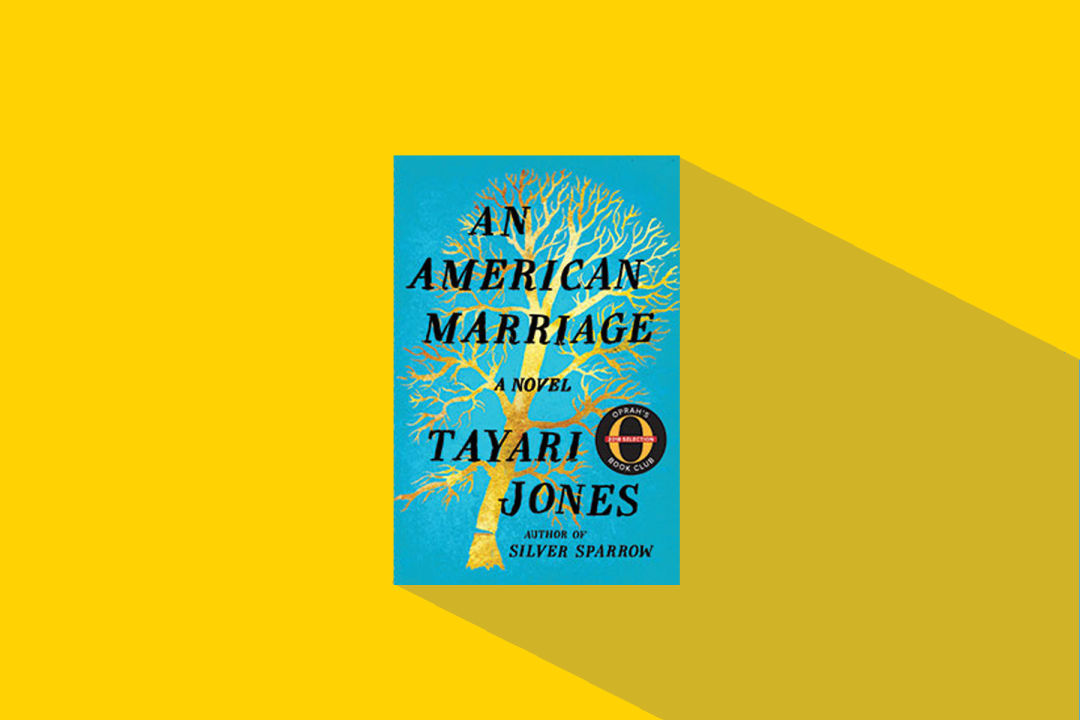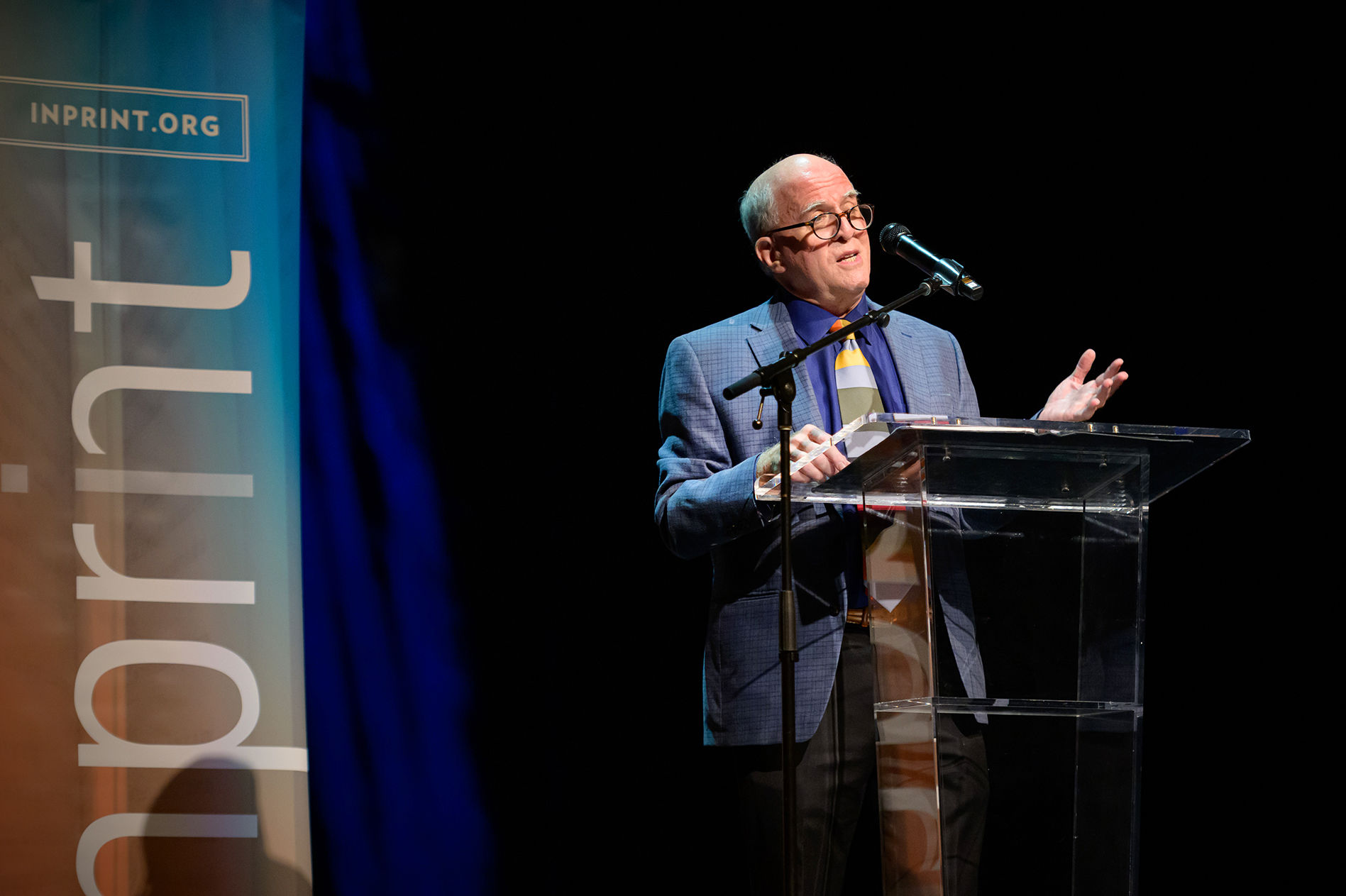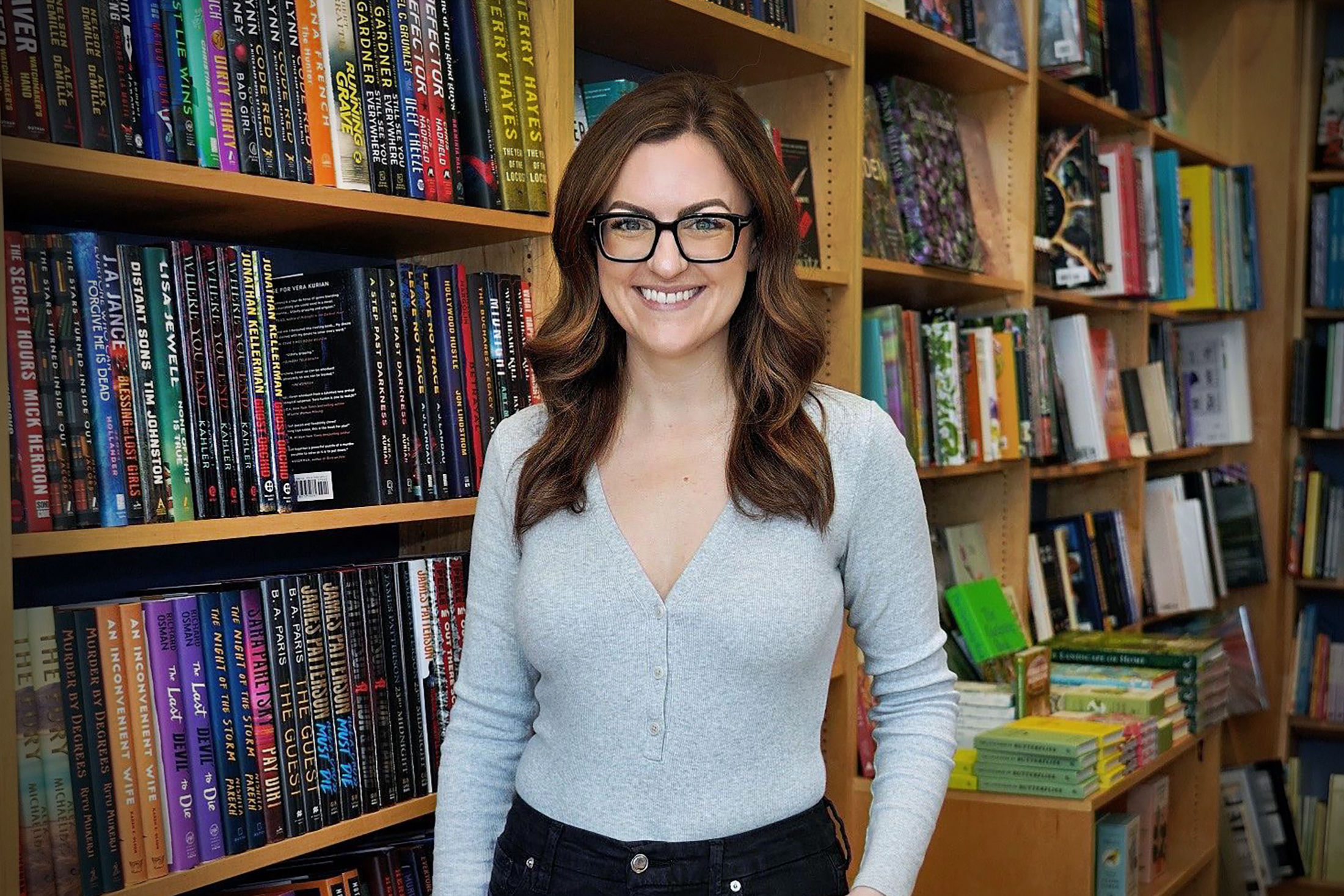Tayari Jones Updates Us On Her Year of Oprah

Image: Courtesy Algonquin Books
A year ago, we talked to writer Tayari Jones just after it was announced that her novel An American Marriage was the newest selection for Oprah’s Book Club. On Monday, she’ll return to Houston to headline the final night of Inprint’s 2018-2019 Margarett Root Brown Reading Series alongside fellow author (and her former neighbor!) Richard Powers.
We caught up with Jones before her visit to talk about how life has changed for her, why we’ve got to listen to Mick Jagger’s advice, and her plans to revive regional literature.
You’re basically a year out from the Oprah’s Book Club announcement. What has life looked like for you since then?
The biggest thing is that I moved back home to Atlanta! I moved to New York to try and make it as a writer, to be where publishing is, and I do feel like this opportunity has allowed me to move back home. I’m also really interested in the idea of regional literature: I don’t want to be a Southern writer in exile anymore. I want to be a Southern writer who is living and writing in the South.
I like that! It’s awesome that this book has given you the chance to do that.
Yes! I noticed when I published the book and when I was on tour that everyone that I’d be in a Q&A with or doing a festival with—even if the festival was abroad—I would always be paired with someone who lived within walking distance of my apartment in Brooklyn. And I realized that American literature has become so headquartered in New York. Manhattan is where publishing is, and Brooklyn is where the writers live. I was worried that it was causing a sameness in our literature, even though the writers are from all over the country, all over the world. We’re all neighbors.
I really am trying to push back against this and have the writing represent the country—the whole country. I just think that because the U.S. is such a huge country, our regional aesthetics are so distinct. And that’s a virtue of our literature! We should play it up rather than play it down.
The book’s been out and about in the world for over a year now. What reactions to the book have surprised you the most?
It surprises me how passionate people are about the characters. Book clubs have reported to me that they have come to blows—I had not expected that. That has been quite a surprise.
But the other thing that has surprised me is the number of people who have real-life experiences that either reflect what’s in the book, or the book caused them to think more deeply. There was a young man I met in Virginia whose father had been incarcerated for all of his life and for all of his life he had been angry with his mother—he didn’t feel that she was playing the role of the spouse of the incarcerated person properly. And this book made him think about his mother as a woman, and not just as this role of wife or role of mother. I hadn’t anticipated that, so that was really meaningful.
And then recently in San Antonio, I met a man who said that he had been a white-collar professional, and he had been imprisoned for a crime he didn’t commit. And he urged his wife to divorce him so that she could go on with her life. She married another guy who was really nice, and now the three of them vacation together.
That’s crazy.
Right? It’s very validating. When you write a novel, there’s one impulse where you feel like you’re bringing awareness to a topic that people might not know. But the greatest accomplishment is to bring deeper insight to people who do know what you’re talking about. It makes you feel like you’re moving a more important conversation forward.
It’s making me think about the ending of the book again. I knew that the first time I read it that I loved the ending, because I felt like it was mature and made sense. But I knew a lot of people were not going to be happy with it. But it feels very realistic.
I like a plausible but hopeful ending. If someone is living that experience, I would not want the devastating ending. I don’t think the purpose of my work is to remove hope from the world, so it’s important that it be realistic but optimistic also. If we do the work as individuals and as a culture, we can move forward. It isn’t easy, but it can be done.
The end of the book is not really what anybody in the story expects the end to look like, but it makes sense. It works out correctly.
We have to give respect to the great Mick Jagger. What did he tell us? He said, you can’t always get what you want—but sometimes, you get what you need! (Laughs.)
When I reread the book, I noticed more and more the use of the word “communion.” Celestial says she believes in communion, but not in marriage, and the idea pops up a few more times and returns in the epilogue. What do your views on the matter of marriage and communion look like?
I think that writing this book told me that what makes marriages work is a question of compatibility. There’s not one right way to be in a relationship. Very often people point to Roy’s parents, Olive and Big Roy, as having the strongest marriage. I think their marriage is really the most traditional. But I think people are able to build their lives together when they want the same kind of life. And if both people are happy, as far as I’m concerned, it works. I don’t think there’s a generic idea of what works. If there are people that feel they need this kind of state-sanctioned, church-sanction union and both people want that—that works. But if people feel strained by titles and labels and conventions, then that won’t work for them. I think any relationship that does work has to be a communion.
An American Marriage is being optioned as a movie—who’s your perfect Celestial, Roy, and Andre?
I never say, because if they aren’t cast, I don’t want the other people to feel rejected! I can tell you my ideas for the small parts. I think Eddie Murphy would be awesome for Roy’s cellmate. Kinda funny. Think Eddie Murphy a la Dreamgirls, not The Nutty Professor. And I think for Celestial’s parents—it would be great if her mother was played by Angela Bassett and her father by her real-life husband Courtney B. Vance.
Okay, I love Angela Bassett more than anybody in the world, so I am completely on board with that.
And think about the nice little wink-wink if her husband is cast as her husband!
I love it. My roommate and I have said that there’s some perfect version of Who’s Afraid of Virginia Woolf? waiting to be made with Angela Bassett and Courtney B. Vance starring in it.
See? Exactly! I’m here for it! Let’s start a whole franchise of movies starring them.
What’s next for you?
Well, that’s an excellent question. I want to write another novel, obviously. I think I want to write another novel about Atlanta, and I want to write a novel about the changing Atlanta. I’ve come home to a city that’s very different from the city in which I grew up. I’ve moved into a neighborhood that’s changing. I feel like I’m coming home, but it’s not exactly home. So I want to ask the question: Can you gentrify your own neighborhood? That’s a real thing I’m asking myself as I’ve come home. It’s what I’m facing—I’m living in a big old house in a part of the city that didn’t have big houses when I was growing up. It’s very strange. It’s such a unique experience, especially having gone north and then coming back south. I feel like it’s so rich for stories, and it’ll help me better understand what the hell I’m doing. (Laughs.) This whole moving back, there’s more to coming home than you would think. I ran into my kindergarten teacher in the grocery store, and she recognized me. She’s only like 4-foot-8. She used to seem so tall!
I think that’s everything I have, unless you have something funny to tell me about Oprah.
Nope! I have nothing. Oprah’s like Fight Club. (Laughs.)
April 22. Tayari Jones/Richard Powers, Inprint Margarett Root Brown Reading Series. Tickets $5. Stude Concert Hall, Rice University, 6100 Main St. More information at inprinthouston.org.




